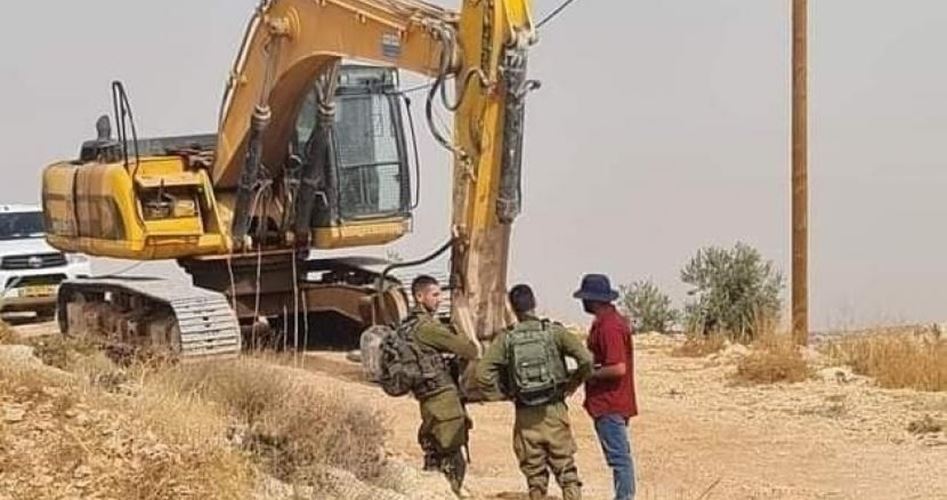Israeli forces assaulted two Palestinian men, confiscated 2 bulldozers, and delivered stop-work orders for four homes and a shed, near the central West Bank city of Salfit, according to local sources.
Israeli occupation forces delivered, on Wednesday, five stop-work orders against four Palestinian-owned homes and a shed, in Yasuf village, southeast of the central West Bank city of Salfit, according to a local official.
Deputy head of the Yasuf village council, Wael Madi, said that Israeli troops stormed the village of Yasuf and delivered cease-construction orders on 4 inhabited homes and a shed.
Madi added that the soldiers delivered stop-work notices to the owners of the homes, Qais Obeya, Omar Obeya, Sari Abdel Razek, and Alaa Musleh, in addition to Rabih Obeya, who owns the shed.
Meanwhile, on Wednesday evening, Israeli forces assaulted and detained two Palestinian men, and confiscated two bulldozers in Deir Ballut town, west of Salfit in the central occupied West Bank, local sources reported.
Sources said that the soldiers assaulted Samer and Majed Dawood Abdullah, and detained them for many hours before releasing them and seizing their bulldozers.
The occupation army invaded the town and fired tear gas canisters at Palestinian civilians near the under-construction home, belonging to Bahaa Abdel Wahhab Abdullah.
It was reported that Abdullah had received a prior notice by the occupation authorities to cease construction of the home under the pretext that it is located in “Area C”, which is under complete Israeli civil and administrative control.
“The 1995 Oslo II Accord divided the West Bank into three types of areas. Concentrations of Palestinian population in built-up areas, which were – and still are – home to most of the Palestinian population in the West Bank, were designated Areas A and B and officially handed over to Palestinian Authority control.” – B’Tselem
“The remaining 61% of the West Bank were designated Area C – the land mass surrounding Areas A and B, where Israel retains full control over security and civil affairs, including planning, building, laying infrastructure and development.” B’Tselem
“The odds of a Palestinian receiving a building permit in Area C – even on privately owned land – are slim to none. Given the futility of the effort, many Palestinians forgo requesting a permit altogether. Without any possibility of receiving a permit and building legally, the needs of a growing population leave Palestinians no choice but to develop their communities and build homes without permits. This, in turn, forces them to live under the constant threat of seeing their homes and businesses demolished.” – B’Tselem

